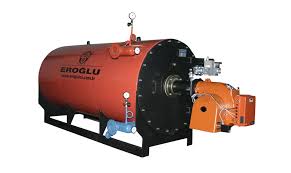
ກ.ກ. . 27, 2024 16:31 Back to list
Chemical Treatment Strategies for Enhancing Hot Water Boiler Efficiency and Longevity
Chemical Treatment of Hot Water Boilers An Essential Maintenance Procedure
Hot water boilers are critical components in various industrial and commercial applications, providing heating and hot water for processes, space heating, and other operations. To ensure they operate efficiently and have a longer lifespan, regular maintenance is essential, with chemical treatment being one of the most crucial aspects. This article outlines the importance of chemical treatment for hot water boilers, the common types of chemicals used, and the benefits of maintaining proper water chemistry.
Why Chemical Treatment is Necessary
Water naturally contains dissolved minerals, impurities, and microorganisms that can negatively impact the performance and longevity of hot water boilers. When water vaporizes, it leaves behind scale deposits, which can accumulate on heat exchange surfaces. This buildup reduces heat transfer efficiency, leading to increased energy consumption and potentially causing overheating and boiler failures.
Additionally, oxygen and carbon dioxide in water can lead to corrosion, further damaging boiler components. Without proper chemical treatment, these issues can result in increased maintenance costs, reduced efficiency, and unplanned downtimes due to unscheduled repairs.
Common Types of Chemicals Used
1. Corrosion Inhibitors These chemicals protect metal surfaces from rust and corrosion. Common examples include sodium nitrite, molybdate, and phosphates. They work by forming a protective layer on the metal surfaces, thereby preventing the contact of corrosive elements with the boiler materials.
2. Scale Inhibitors To combat the formation of scale, scale inhibitors such as polyacrylic acid or phosphonates are employed. These chemicals interfere with the crystallization process of mineral deposits, keeping them suspended in the water and preventing them from adhering to boiler surfaces.
hot water boiler chemical treatment

3. Alkalinity Enhancers To control pH levels, which are crucial for minimizing corrosion, chemicals such as sodium bicarbonate or sodium hydroxide are added. Maintaining an appropriate pH level (typically between 7 and 11) helps create an environment resistant to corrosive activity.
4. Biocides To prevent the growth of bacteria, fungi, and algae, especially in systems that may experience stagnation, biocides like glutaraldehyde and quaternary ammonium compounds are introduced. These compounds help maintain water quality and prevent the formation of biofilms that can lead to blockages and system inefficiencies.
Benefits of Proper Chemical Treatment
Implementing a rigorous chemical treatment program for hot water boilers yields numerous benefits. Firstly, it significantly enhances the efficiency of heat transfer, thereby reducing energy consumption and operation costs. A well-maintained boiler system also leads to improved reliability, minimizing the risk of unexpected failures and extending the equipment’s lifespan.
Moreover, chemical treatment helps maintain the quality of the hot water produced, ensuring it is free from harmful contaminants. In many industries, such as food processing and pharmaceuticals, maintaining high water quality is essential for compliance with safety standards and regulations.
Furthermore, regular monitoring and adjustments of chemical levels ensure optimal water chemistry. This proactive approach not only prevents potential issues but also enables operators to detect problems early before they escalate into serious concerns.
Conclusion
In conclusion, chemical treatment is an indispensable part of hot water boiler maintenance. By addressing issues such as corrosion, scale buildup, pH balance, and biological growth, chemical treatment enhances efficiency, reliability, and overall system performance. Regular monitoring and a well-planned chemical treatment regime can lead to significant cost savings, improved operational stability, and a longer lifespan for hot water boilers. Therefore, investing in proper chemical treatment is a smart choice for any organization relying on boiler systems for their operations.
-
Best Steam Boiler Design PDF Free Design Calculation & Diagram Downloads
NewsJun.10,2025
-
Hot Boiler Water Heater Efficient Heating Solutions for Home & Commercial Use
NewsJun.10,2025
-
Steam Boiler Safety Devices High-Quality Protection Valves
NewsJun.10,2025
-
Ultimate Steam Boiler Checklist for Safety & Efficiency
NewsJun.10,2025
-
Optimal Hot Water Boiler Temperature Setting Guide
NewsJun.10,2025
-
Effective Hot Water Boiler Chemical Treatment Protect & Maintain
NewsJun.09,2025
Related PRODUCTS






















